

While even a casual glimpse into the history of wealth management shows big strides toward democratization and technological evolution, looking at the future of the industry through the eyes of a diverse collection of experts offers the kind of promise and opportunity that should keep advisers on their toes.
In this collection of seven views from across the wealth management industry, you’ll recognize optimistic outlooks on the growth of digital currencies and ESG investing. But there are also messages about retirement planning, as people live much longer than expected, and practice management perspectives for a world that is moving quickly beyond historical demographic models.
Technology, in an ever-present way, will become a major part of the evolution of wealth management, and the notion of what a financial adviser adds in terms of value will continue to change.
But ultimately, from every direction and perspective, it keeps coming back to a greater need for financial advice.
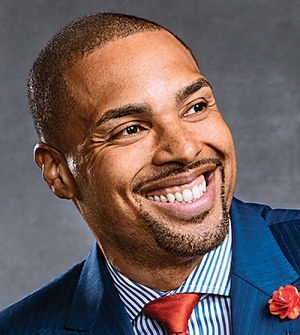
The world is moving toward cryptocurrencies faster than most want to realize, and financial advisers can either get on board or get lost in the dust.
That’s the kind of statement many so-called legacy financial planning firms might not want to hear, but Tyrone Ross Jr. insists it is a message that needs to be presented.
“If I’m a young adviser right now, or not, I’m getting a CFP immediately and specializing in any type of digital or cryptocurrency planning,” said Ross, CEO of Onramp Invest and founder of 401STC.
“You have every reason to go run and do it now, and specialize in this particular area,” he said. “The changes to financial planning will be cataclysmic. There’s a lot of inflection points now that spell doom for the legacy wealth management setup.”
Looking past the traditional financial adviser population, whose average age is around 59, and a general client base weighted toward the mass affluent, Ross sees the future of financial advice in the younger generations slated to inherit mountains of wealth.
“They are used to a mobile experience that is beautiful, elegant and fast, and away from the adviser,” said Ross, who envisions a financial advisory relationship of the future that hands over neither custody of assets nor portfolio discretion, but still needs help.
“Advisers will have to get used to clients having assets away from the adviser,” he said. “Clients will tell advisers, ‘I have accounts, you’re not going to touch it, but I do still need your advice.’ And you won’t custody the assets or bill on the assets.”
One major impact of the emergence of a more digital-savvy and independent-minded client base is a crushing blow to traditional asset-based fees, Ross said.
“AUM fees will be under serious threat because there are 30-year-olds putting together portfolios that will make financial advisers’ heads explode,” he said. “There will be technology that will allow fee-based pricing, but maybe it will be a monthly retainer or maybe an hourly model. It all depends on how the adviser wants to build it, and he will have to be nimble.”
Envisioning a future where cryptocurrencies are a portfolio staple, Ross said there will be opportunities for firms to “just do financial planning for folks that own a lot of crypto.”
“I see it coming; it’s just a massive wave, and the opportunities will be monumental,” he said. “Crypto is creating a lot of wealth, and there’s such a lack of knowledge of crypto in general. Those with the expertise will win the day.”
Beyond just financial planning expertise, Ross is talking about tech-savvy planning that caters to the emerging market of investors who want everything right now and in the palm of their hands.
“Technology will completely disrupt our space, dashboards will be rendered obsolete, and billing will be disrupted because technology will allow billing by the day or hour,” he said.
Ross cites the fact that half of all the new accounts opened on the Robinhood app were opened within the last five years.
“That is telling you where we’re going,” he said.
Regarding the smaller size of the average Robinhood account, Ross said, “Those are the same folks inheriting all the money, and 60% of Robinhood accounts trade crypto.”
“It won’t only be advice on crypto, but crypto will drive the change,” he said.
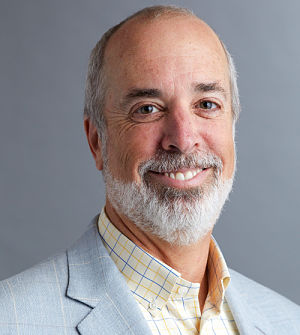
Traditional financial planning models are far too short-sighted to adequately serve clients with any future beyond the next decade, according to Ric Edelman, founder of Edelman Financial Engines and the Digital Assets Council for Financial Professionals.
“Advice in the future is going to be radically different than the advice that has been provided by financial planners over the past several decades, and the reason is longevity, which is changing everything,” he said.
A prolific writer and prognosticator who has authored 11 books, Edelman’s outlook follows a theme laid out in his 2017 book, “The Truth About Your Future: The money guide you need now, later, and much later” (Simon & Schuster).
While Edelman was an early and eager proponent of cryptocurrencies and financial planning strategies designed around frontiers that most advisers still aren’t talking about, much of his big picture perspective begins with the idea of people living longer.
“If you’re telling clients their financial future is secure because you’re assuming a life expectancy of 80, you may be giving clients false hope,” he said. “Instead of assuming your clients will retire in their 60s and die in their 80s, it is far more likely clients will live to 100 or beyond, and I don’t know of any planners modeling 100 or 110 life expectancy, but if you do your models will explode.”
Citing the exponential growth of technology, including medical advances, Edelman claims anyone who lives to the year 2030 is likely to live to be 100 or more.
“Chances are you’ll be healthier at 95 than you were at 55,” he said. “Aging itself will be slowed, likely stopped, and possibly reversed.”
For financial advisers, this introduces a brand-new twist on the concept of retirement planning. For starters, Edelman sees an evolution beyond the traditional model of “you’re born, go to school, go to work, retire and die.”
“The old map of life developed 100 years ago will be replaced by a new map where we’ll take those extra 20 or 30 years of retirement and splice them throughout our lives,” he said. “The future might include school, work, back to school to learn new skills, new work, sabbatical and back to school again.”
“And you don’t have to work full time all the time, because we will be able to engage in a gig economy where people work on a part-time basis doing things they love whenever they feel like doing them,” he added. “In the ‘60s we called them beach bums; today we call them gig workers.”
For financial advisers relying on traditional models for work and retirement, Edelman said the deck is being reshuffled.
From a portfolio management perspective, he advises rethinking risk management.
“Annuities are fine if you need limited income for a finite period of time, but if you’re going to keep money growing for the cost of living for decades to come, there’s no substitute for equities,” he said. “And you need to invest in exponential technologies, including blockchain and digital assets.”
Edelman, who sits on the advisory boards of the Milken Institute’s Center for the Future of Aging and the Stanford Center on Longevity, pulls no punches when it comes to pushing the cryptocurrency campaign.
“If you haven’t been giving digital assets any thought, you’re already 10 years late, but it’s not too late,” he said. “You can begin by having conversations with your clients about this, because people need to be aware of the future.”

Michael Kitces believes the future of financial advice will be more about financial advice and less about the industry’s history of “consultative selling.”
“For much of the past 20 years, this business has been focused on managing portfolios and then giving all the advice we can give to keep the business, but we’re reaching the point where financial advice is about giving advice,” said Kitces, co-founder of the XY Planning Network and head of planning strategy at Buckingham Wealth Partners.
He sees the transition that’s “happening in slow motion” and driven by technology “making products and implementation more accessible at a lower cost.”
“It will become about the entire balance sheet: the assets beyond the portfolio and the liability side to include things like mortgages and student loans,” he said.
Leveraging technology and moving beyond basic portfolio management will inevitably move financial advice down market to demographic groups that didn’t always appeal to asset-based financial planning business models.
“Financial planning and the nature of seeking advice do come from situations where we have some kind of complexity, and advisers certainly live in a realm of complexity,” Kitces said. “But the traditional lens of what constitutes a complex client will break because we have only viewed client complexity through an AUM lens.”
Kitces challenges the traditional industry view that “people with less than $100,000 aren’t financially complex.”
“Nobody in their 30s and 40s says their life is not financially complex,” he added. “These people are dealing with graduating from school, getting married, their first home, first job, getting divorced, second marriage, second job. There are so many things that happen to people in their 30s and 40s that have nothing to do with their investible assets.”
Kitces doesn’t believe the asset-based model will go away, but he does think advisers should be open to other options in order to expand and survive in wealth management.
“Not that there’s anything wrong with the AUM model for people that have piles of assets to manage, but AUM only works on delegators that want to be served,” he said. “And we’ve only ever served one type of client for the past 20 years.”
The challenge in moving away from asset-based pricing, Kitces said, is developing expertise and building scale, which is where technology comes in.
“Scaling an advice business is very different than how you scale an AUM business because the fee structure is different and the service is different,” he said. “Starting with the traditional model of financial advisers is if they can fog a mirror, they’re a prospect. But when you start working in the fee-for-service realm, you are charging for service and expertise.”
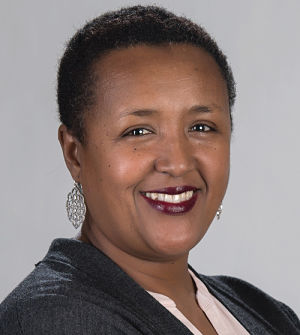
After spending the bulk of her career in traditional wealth management, Lule Demmissie says she “leapt into a startup that is swimming in territories where they are blurring an understanding of where the future will be.”
Taking over as the U.S. chief executive of Israel-based fintech platform eToro in September has placed Demmissie on the front lines of the wealth management revolution and evolution.
“Every part of our lives have been disintermediated, so there’s no reason we should think financial services will not be disintermediated,” she said. “The world is flatter now and people get information more quickly because you don’t need to go to the corner office for information anymore when there are people on social media sharing tips and techniques.”
As part of the fast-paced digital movement toward innovation, Demmissie sees broader access to products, services and people that could flip traditional financial planning on its head.
“We’ve become a world that embraces a wide spectrum of individuals with an awareness of wanting to do good with capital,” she said.
Demmissie describes the current financial planning model as, “‘You don’t know, so let me teach you.’ It’s a parental model, but that will change because the consumer is coming with all this information.”
A big part of the evolution, she said, will be moving away from business models based on portfolio management.
“Advisers will recognize it’s not just about portfolios; it’s about helping people managing the psychological side of money,” she said. “Advisers just doing portfolio management will be the first ones to get dated.”
As Demmissie sees it, a key element to the evolution is not just more diversity in the wealth management ranks, but how that diversity happens.”
“It will take a while, and the advisory base would not be accused of being diverse, but wherever you have diversity you have vibrance of innovation,” she said.
In essence, Demmissie expects diversity to drive the changes in wealth management, and that could mean brand-new models showing up to compete with legacy planning models.
“First you have to adjust your model because just having diversity in an old model will not work,” she said. “Diversity and demographic changes will happen. The question is, will the wealth management industry become part of those changes, or does the industry on the outskirts gobble it up?”
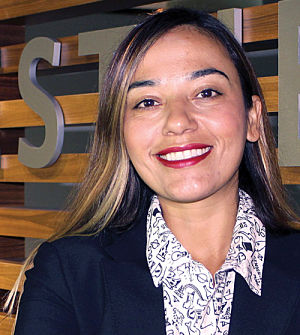
Aided by a global pandemic that forced the world to embrace new ways of doing business, wealth management is quickly moving beyond the traditional office meetings. But the future will be all about decentralized investing, portfolio management, and even the way wealth is accumulated.
“Instead of a typical career path, we will see more gig workers, entrepreneurs and side hustles, because the days of a single paycheck with predictable wages are gone or becoming fewer,” said Dani Fava, head of strategic development at Envestnet.
As wealth accumulation evolves, Fava said wealth management will need to evolve as well or be left behind.
From fintech innovation to cryptocurrency investing and broader access to things like private equity, Fava said a financial adviser’s biggest value-add will be “putting that picture together and bringing it all into one place.”
As investment strategies evolve and the financial adviser becomes more of a quarterback, Fava said the notion of sustainable investing will blend into everything to the point where ESG will no longer exist as a separate investing category.
“Investment management is going further and further toward ESG because the societal issues we face, people will realize if they put their money purposefully into issues they want to solve, there will be a tipping point,” she said. “And personalization will merge with ESG as well, because ESG is directing investments toward something that someone cares about.”
Fava also expects major disruption in client prospecting and hiring.
“I think this next generation of wealth accumulators will find financial advice and planners in different places; they’re not going to traditional financial institutions, they’re going to TikTok,” she said. “Firms will compete by hiring those people. Add young influencer talent and financial coaches, then a client eventually graduates to a traditional financial advice model.”
Fava’s other forecast, which she describes as “far out,” is a trend toward consumer companies replacing traditional financial services brands. “If you look at the top 20 best-known brands in this country, none are financial services,” she said. “Combine that with 73% of consumer brands planning to launch embedded financial services in the next three years.”
The wealth management gold mine that private equity zeroed in on a few years ago is ripe for disruption, and Fava believes the consumer sector already has the relationships on which to build.
“Consumer brands are entering the space by teaching consumers how to make, save and invest money because they know if you learn how to do that on their app, you will know them as a financial services firm,” she said. “That’s incredibly smart.”

The future of financial advice is down market, according to Alyssa Riedel, co-founder of RDCL, a social science-based research firm focused on wealth management.
The primary factor driving the kind of disruption that will push the focus toward a broader retail market is the smartphone, she said.
“When I close my eyes and think about 20 years from now, I think we will see financial advice move down market quite a bit,” Riedel said. “In 10 years or less, financial advice will be accessible to everyone, and the biggest reason is the smartphone.”
According to Riedel, 85% of Americans now have a smartphone, which is up from 35% in 2011, reflecting a seismic shift that occurred subtly.
“The phone and our relationship with technology is making things super-accessible,” she said. “You’re seeing communities built; it’s a hive-mind community happening. I haven’t seen anyone apply that in our space yet, but I think they will.”
From Riedel’s perspective, the technologies and apps that become more accessible through wider use of smartphones will make “financial advice become so much more germane to everyday life.”
The success will be based on the same kinds of addictive ingredients that make other apps so popular. She draws parallels between exercise and diet apps that help motivate and track activities but said the down-market part will come from a more diverse industry.
“The way the industry currently looks won’t be the same when moving down market,” Riedel said. “The income gap and access-to-advice gap is huge. Companies are leaning in to figure out how to close the gaps. But we’ve found that people generally want advice from somebody that looks like them. So as we attract more diversity, you’ll see that gap close.”
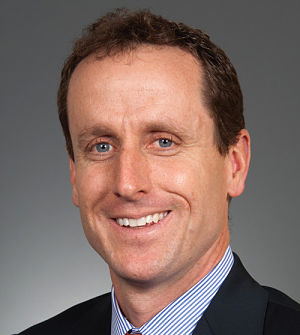
If there was any doubt about fee pressure reaching the financial adviser level, Mike Durbin, head of Fidelity Institutional, is setting the record straight.
Citing the fact that until now, “most of the fee pressure has come through the building blocks advisers are using,” one way or another, adviser fees are next to feel the pressure, Durbin said.
“If there’s any room for fees to drop, it’s probably at that threshold level, and to keep that fee, they have to move up the value stack with things like tax planning, tax advisory and estate planning,” he said.
In essence, unless advisers figure out ways to create scale on the value-added side, they are heading toward de facto fee compression.
“If you don’t allocate, you’re just adding incremental costs, that is a form of fee pressure,” Durbin said, with a nod toward outsourcing wherever possible.
And therein lies the rub, because at the same time advisers are trying to create scale in services that go beyond basic portfolio management, they will need to satisfy the growing demand for personalization.
“Consumers are demanding more personalization,” Durbin said. “They want portfolios and solutions that are personalized around what they hold important, including values-based investing. The consumer will be the catalyst for increased need for personalization.”
Durbin envisions a point at which advisers outsource general portfolio management, and the personalization is done by the adviser.
“If an adviser will be able to credibly personalize, they will have to be good at portfolio construction,” he said. “The adviser is building the portfolio consistent with tax planning goals, ESG, venture capital and illiquids. Those are the kinds of discussions the adviser needs to have because that’s tough to outsource.”

Relationships are key to our business but advisors are often slow to engage in specific activities designed to foster them.

Whichever path you go down, act now while you're still in control.

Pro-bitcoin professionals, however, say the cryptocurrency has ushered in change.

“LPL has evolved significantly over the last decade and still wants to scale up,” says one industry executive.

Survey findings from the Nationwide Retirement Institute offers pearls of planning wisdom from 60- to 65-year-olds, as well as insights into concerns.
Streamline your outreach with Aidentified's AI-driven solutions
This season’s market volatility: Positioning for rate relief, income growth and the AI rebound
